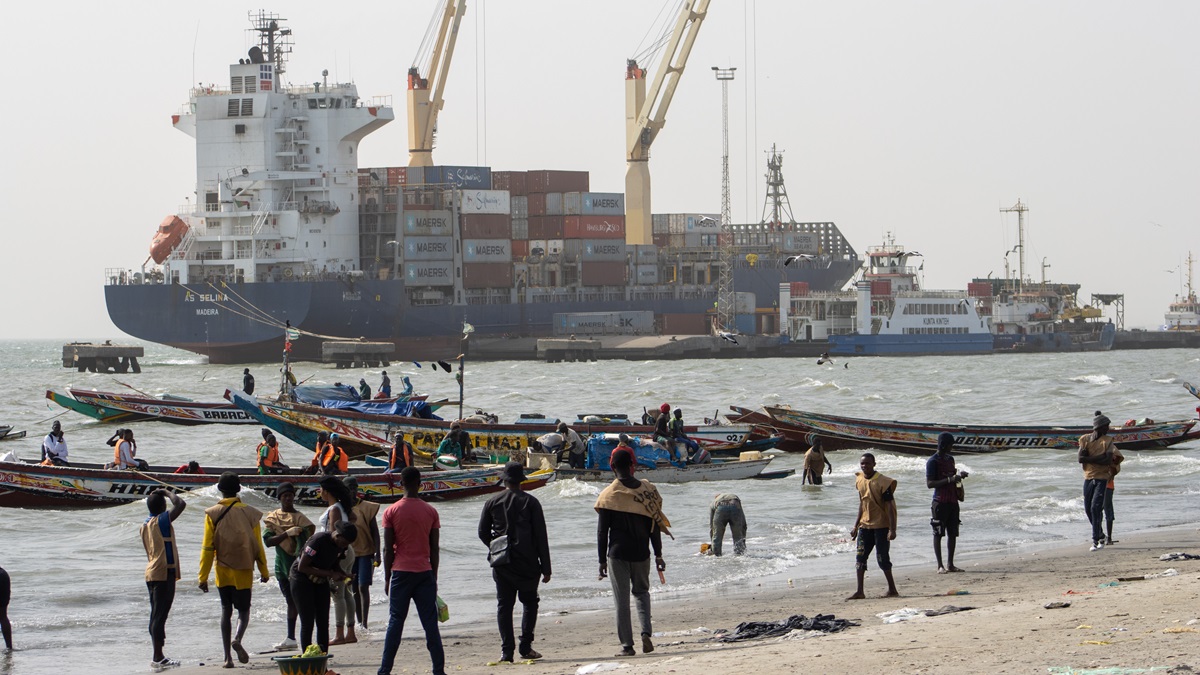The African least developed country has made significant strides in attracting foreign direct investment. What more can be done to sustain the momentum?
© Shutterstock/Ian Peter Morton | Banjul Port, The Gambia
The Gambia – one of the smallest African states with a population under 3 million – has undertaken significant reforms in recent years, particularly since receiving its investment policy review led by UN Trade and Development (UNCTAD) in 2017.
In a new report produced at the Gambian government’s request, UN Trade and Development assesses the country’s progress towards implementing recommendations from the 2017 review.
The report also proposes additional measures to further improve the investment and business environment in the West African nation.
Surge in foreign investments
From 2017 to 2021, foreign direct investment (FDI) flows to the Gambia shot up by approximately 14-fold, reaching an all-time high of $249 million.
Currently, FDI inflows correspond to about 10% of the country’s GDP, up from just 1% in 2017.
The Gambia also outperforms neighbouring, larger economies, with FDI per $1,000 of GDP nearly seven times the average of the Economic Community of West African States (ECOWAS), and four times higher than that of other African least developed countries.
By the end of 2023, the Gambia’s FDI stock stood at nearly $1.4 billion. This was the largest among regional peers relative to GDP, excluding Mauritania.
Extensive efforts, tangible results
Despite multiple global crises since 2017, the Gambia implemented reforms to update its investment legislation and regional investment agreements.
It also made progress in rolling out e-government tools and fostering dialogue between the public and private sectors.
Additionally, several laws are currently under review for improvement.
These efforts have led to stronger regulation, better infrastructure, more access to international markets, as well as growing interest from foreign investors in the country’s manufacturing, agriculture, tourism and energy sectors.
Building on existing success
To further tap the Gambia’s investment and development potential, UN Trade and Development proposes a range of new recommendations.
It underscores the need for clearer investment-specific legislation aligned with best practices, and a more targeted investment promotion strategy.
It also advocates for including more sustainable development features in investment treaties, pointing to UN Trade and Development tools such as the investment policy framework for sustainable development, the reform package for the international investment regime and the international investment agreement reform accelerator.
Echoing the latest World Investment Report, UN Trade and Development encourages the Gambia to keep expanding e-government initiatives, which are key to improving governance, transparency and the ease of doing business.
It also recommends more capacity building to bolster competition and consumer protection.
More on investment policy reviews
Since 1999, the Investment Policy Review programme of UN Trade and Development has covered 60 economies worldwide.
The programme offers objective assessments of a country’s legal, regulatory and institutional framework, along with tailored recommendations to leverage investment for development benefits.
Key areas of evaluation include FDI-specific frameworks, business creation, taxation, labour, competition, the environment, governance and sectoral regulations.

